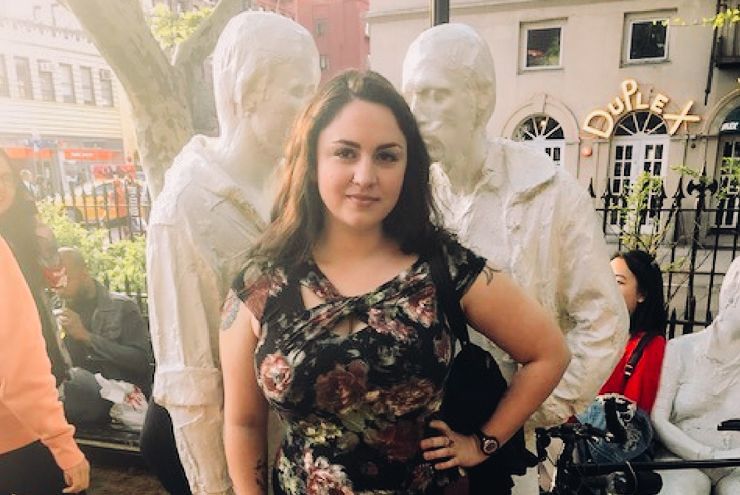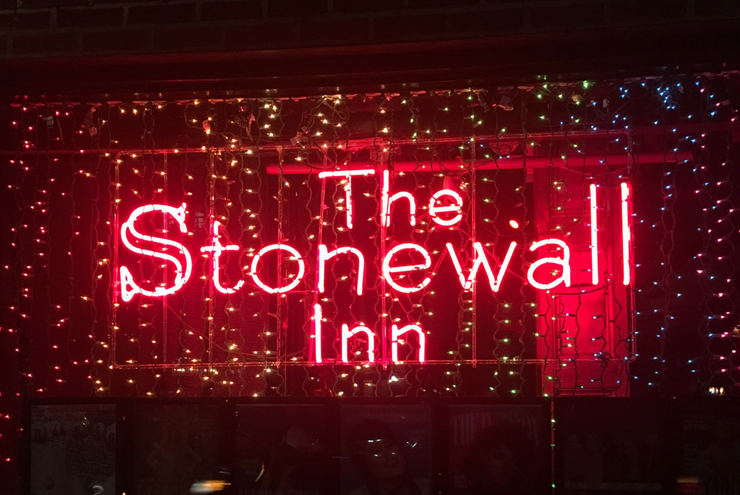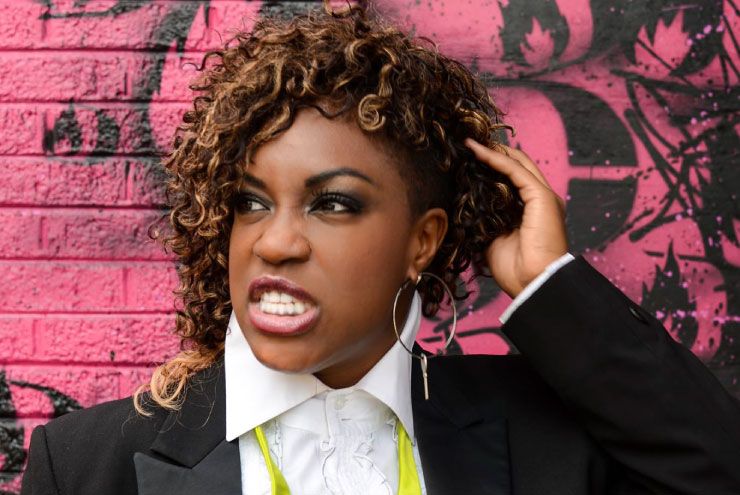By Dr. Laura McGuire
Have you seen the Disney movie Moana? Of course you have, it’s amazing. In it, the protagonist, Moana, senses that her heritage is far more complex than what she’s been told. She knows, based on this gut instinct and nagging intuition, that her people are so much more courageous and fearless than her parents and neighbors have led her to believe. She goes on to discover that her ancestors were, in fact, voyagers who braved endless raging seas and created pathways to uncharted lands.
It is in this same vein that we must reflect upon our own queer heritage. So often, we see being queer as a white, watered–down, bite–size version of who we really are. Gay men are depicted as colorful and whimsical characters, lesbians are hardworking, handy women or easily digestible femme fatales, trans people are celibate and sorrowful, and bisexuals are all women who are curious, but faithfully addicted to heterosexuality. The media projects these pre-packaged images so that the straight, cis masses feel less threatened by the reality of their LGBTQ neighbors. Aren’t queers cute, and funny, and adorable, they jeer? Don’t we want to be homogenized, accepted by, and marketed to our cis, hetero overlords?
No. This isn’t who we are.
In June 1969, a group of LGBTQ friends and acquaintances gathered together in a dark bar in a quiet corner of New York City. They met to find community, fellowship, and potentially love in a time when coming out meant one of two things—jail or a lobotomy. Being queer meant you could lose your job, family, or even your literal mind. To venture out, on a warm summer night, walking the streets of the city, risking everything including your life, just to meet up with a few people who could truly understand you took incredible ferocity. Yet, they gathered. Over and over again, risking everything they had for a truth they could not deny.
On this night, in the heat of the summer, something other than the city pavement was steaming. Tonight, the police showed up, as they often did, set on arresting and breaking up the patrons whose lives were seen as less than human. Tonight, however, something was different. The queers who gathered were done. Done with being seen as weak and disgusting, as second-class citizens and social outcasts. Done with living in fear and repeating the same horror story of oppression and fear. Tonight, they rose, they threw punches, grabbed bricks, and refused to be victims of circumstance and society. These are our ancestors. This is our history.
In 2018, the world is in upheaval. From immigration to police brutality, there are forces at work who seek to harm and oppress marginalized communities across our country. It is easy enough to feed into the trope of the sweet, carefree queers—covering ourselves in rainbows and serving only as comedic relief for our straight, cis friends. But this is not who we are. Just as we fought at Stonewall, we must channel our rage and fight back now. This fight means showing up for elections, running as out and proud candidates, protesting unfair policies, and standing up—both physically and emotionally—for those who are being victimized around us. The ‘60s were not that long ago, and the violence and indignities we faced never actually went away, they just changed form.
This summer, I left my job in New York and moved back to the South. Before departing, I made a pilgrimage to the queer Mecca—the Stonewall Inn. I stood on the streets where my forebears fought; tired, bloody, and emotionally spent, yet unrelenting in their resolution to change their personal and communal fates. I’d wanted to go to Stonewall for so long. To stand on hallowed ground and to feel the whispers of the revolutionary ghosts who allowed me to have the life and career I do. I often wonder what I would have done if I had lived back then. I, sadly, feel that I would have remained closeted and fearful, that I would have never lived my truth. If not for the souls who stood their ground and fought for their lives, our collective lives, I would not have any of the opportunities I so greatly benefit from today.

“I’d wanted to go to Stonewall for so long. To stand on hallowed ground and to feel the whispers of the revolutionary ghosts who allowed me to have the life and career I do.” -Dr. Laura McGuire. Photo courtesy Dr. Laura McGuire.
As I approached the Stonewall Inn, I felt a sense of awe. I placed my hand on its walls and closed my eyes, breathing in the spring air and allowing my heart to speak to the spirits who called these city streets home decades before I was born. The Inn is still in full operation as a gay bar and is officially designated as a National Historic Landmark. Despite this, I had a fearful sense that many of the patrons and passersby did not fully comprehend the magnitude of where they were treading. I especially worry about the lack of queer history being taught in schools. How many LGBTQ kids coming out in 2018 know how far we have come and how ferociously our ancestors fought for us to have Pride or the ability to come out without fear of being imprisoned? I believe that the more we teach younger generations of our forequeers’ accomplishments, the greater their sense of gratitude, reverence, strength, and resilience will be.
I hope that, when asked to name a gay/trans/queer icon, these youth name a political candidate or activist, not just a comedian or artist. I dream of a world where kids don’t use the term “gay” as a slur, but rather to mean someone who always speaks out against inequality. I believe that we can channel the spirit of Stonewall every day—and everywhere injustice rears its ugly head. I believe in our true history.







